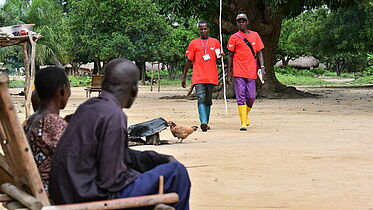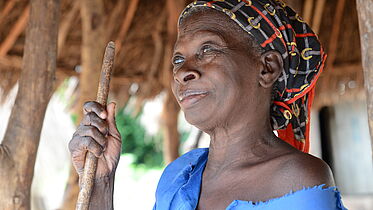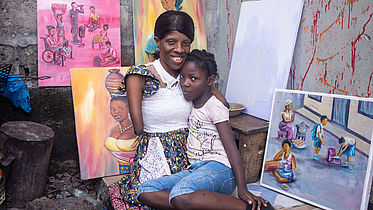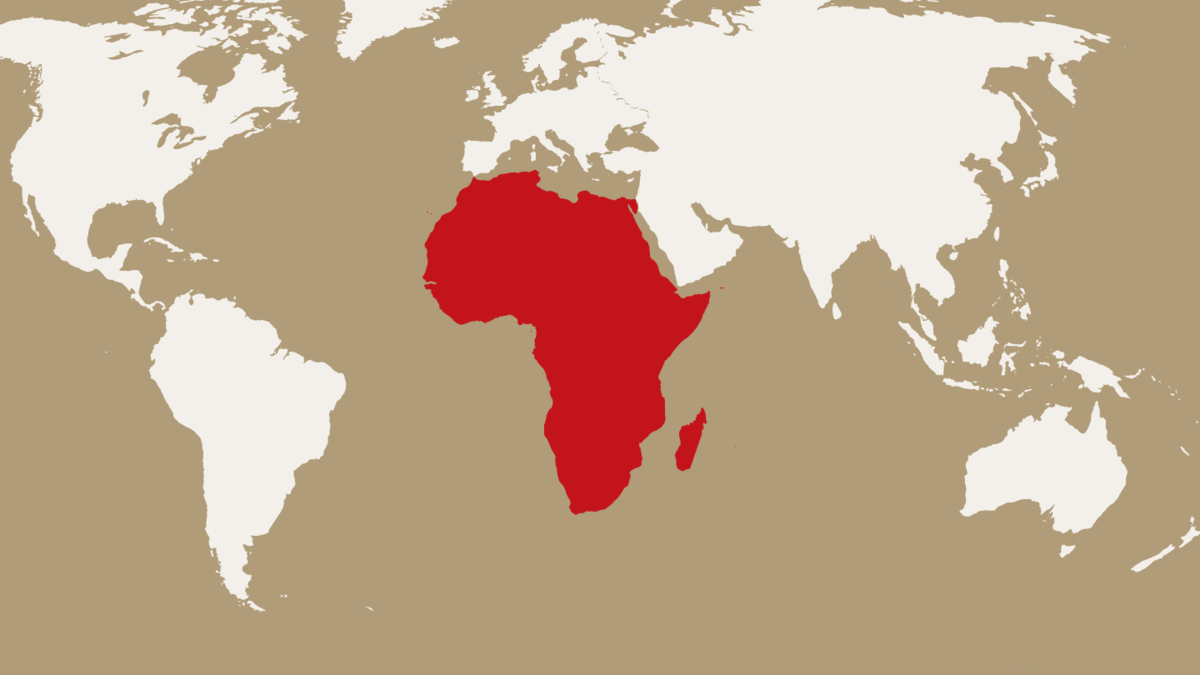
Africa West and Central
CBM established its regional office for West and Central Africa (CBM-AFWC) after signing a cooperation agreement with the Government of Togo in February 1984. Based in Lomé, Togo, CBM-AFWC oversees various disability-inclusive development projects in nine countries: Sierra Leone, Ivory Coast, Togo, Benin, Nigeria, Niger, Cameroon, the Central African Republic (CAR) and the Democratic Republic of Congo (DRC).
In these countries, CBM supports advocacy for greater inclusion of persons with disabilities in the laws, policies and programmes of decision-making bodies, promotes inclusive eye health and rehabilitation services for physical disabilities, and ensures the integration of community-based inclusive development (CBID) in all areas of their life.
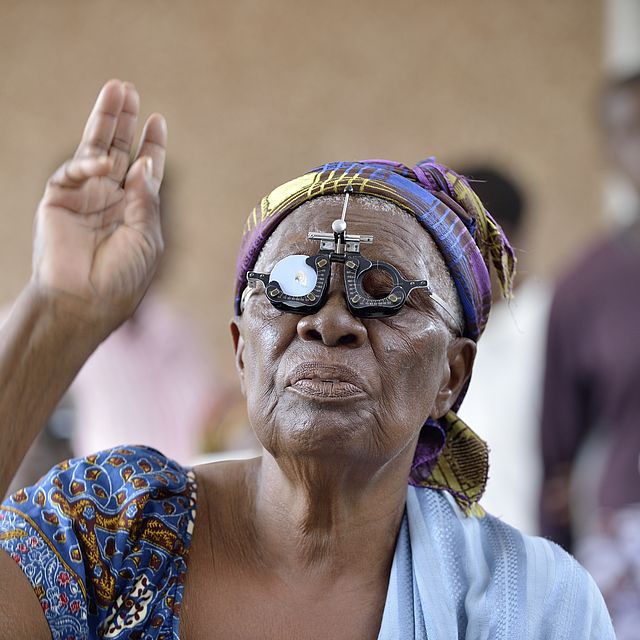
The need
The need for CBM action becomes even clearer when one considers that all AFWC countries rank at the bottom of the UN inequality-adjusted Human Development Index (HDI). The HDI measures life expectancy, access to education and a decent standard of living.
In West and Central Africa, many people live below the poverty line and eat only one meal a day or even go without food. The result is disease and malnutrition, which can lead to physical and mental disabilities.
Persons with disabilities are more likely to live in poverty than persons without disabilities due to social barriers such as discrimination, limited access to education and employment, and lack of inclusion in livelihood and other social programmes. Disasters such as the conflicts and insecurity in Niger and Cameroon, the COVID -19 pandemic, extreme weather and, drought conditions already force poor persons with disabilities into extreme poverty.
Our intervention
The 2030 Agenda for Sustainable Development, and its 17 SDGs provides a powerful framework to guide local communities, countries and the international community in achieving disability inclusive development. CBM is committed to playing its part, especially in light of the Agenda's pledges to leave no one behind by working to improve the quality of life of persons with disabilities.
CBM works through these approaches:
- Strengthening national health systems and improving access to eye health services.
- Community-based inclusive development by ensuring that persons with disabilities are included in all aspects of life.
- Access to humanitarian assistance on an inclusive basis.
- Advocacy for greater inclusion of persons with disabilities in the laws, policies, programmes and practices.
- Partnering with local and regional organisations with funding and technical capacity to work efficiently and effectively.
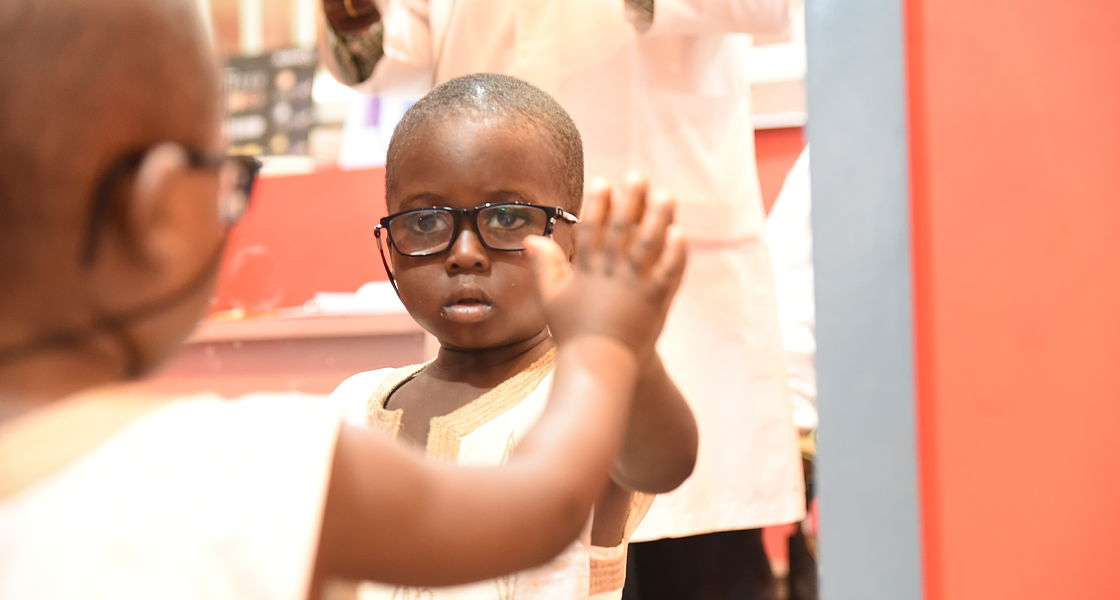
Inclusive Eye Health in Cameroon
©CBM
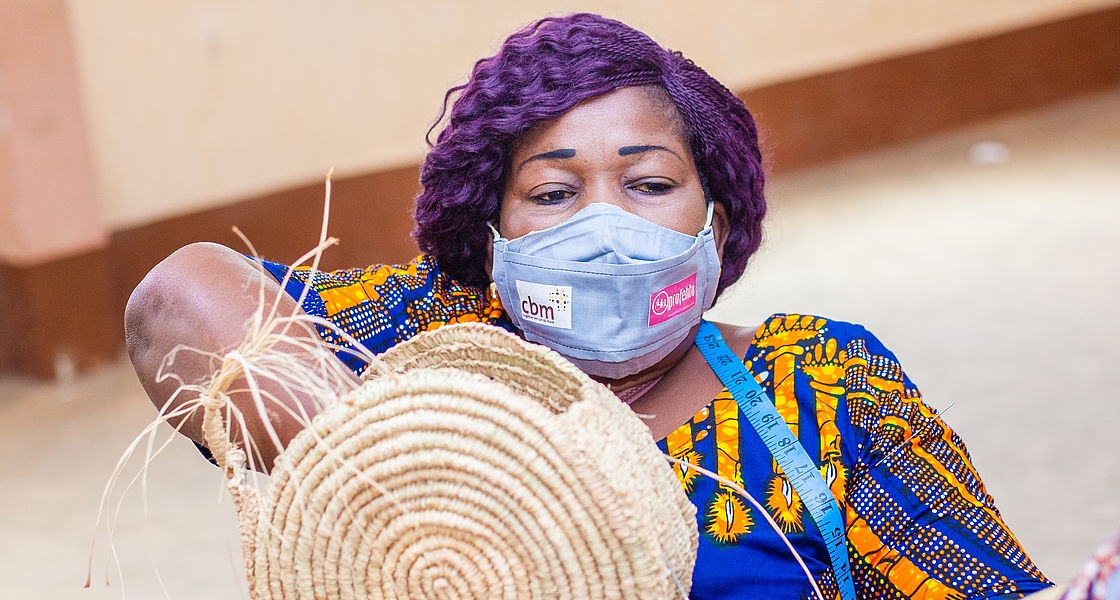
Community Based Inclusive Development in Togo
©CBM/Happuc
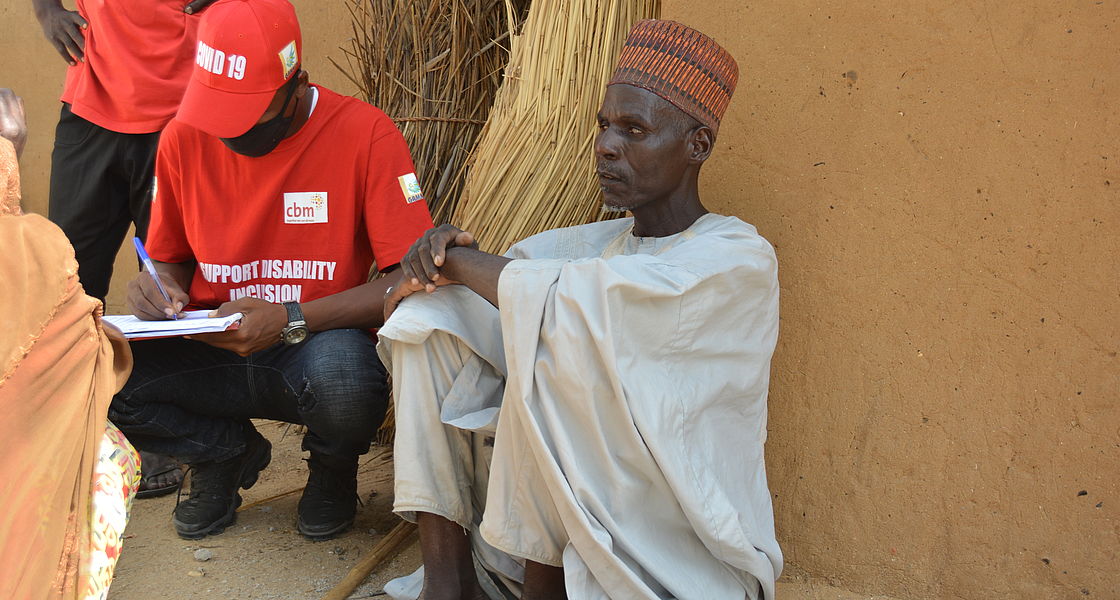
Humanitarian Aid response in Nigeria
©GAMMUN/Abdullahi
CBM-AFWC Reach in 2021
-
89 Projects funded
-
866,200 People receiving services
-
9 Countries
-
72 Partners
Our partners
- The Governments of Countries where we work, non-governmental organisations (NGOs) and Organisations of Persons with Disabled (OPDs)
- The West African Federation of Persons with Disabilities (WAFOD), the West African Health Organisation (WAHO), the Health Commission of the Economic Community of West African States (ECOWAS), WHO, Humanity and Inclusion (HI), Sightsavers, Helen Keller International (HKI), the International Agency for the Prevention of Blindness (IAPB) and others.
